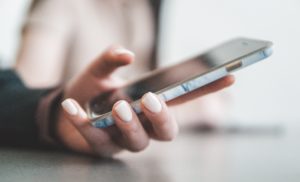*This post contains content that may be triggering for some
It seems to be the running joke of this quarantine that we all will emerge with either a weight problem or a substance problem. With loads of time on our hands, our brains tend to gravitate towards what “fun” things we can do that are accessible at this time. These things are namely: eating and drinking.
For anyone battling with any kind of addiction (alcohol, drugs, etc) or food-related issue (anorexia, bulimia, binge eating disorder, etc), too much time on our hands means that much more effort to resist falling back into our bad habits.

I’ve touched a bit on my eating disorder in this post on positive affirmations—which, by the way, is a great tool to get through those tough moments. But I wanted to get into it a bit more today because I know so many people are struggling in self-isolation right now.
For more than eight years I fought with bulimia. I’m happy to announce that today marks my fourth year of being bulimia-free. I write that with such ease, as if it just happened one day. But truthfully, these past four years (and the four leading up to it) were filled with many failures and thousands of negative thoughts. However, for every hundred negative thoughts, there was at least one positive thought. One positive thought that started a positive action.
We’re all at different stages of our journeys, fighting different illnesses and conditions. Our missions may vary slightly, but in the end we all just want to be ok, to be free from the burden of addiction. I also consider eating disorders addictions, because they exhibit addictive patterns, such as enjoying the feeling of release after purging and the desire to do it again and again.
Self-isolation is trying for those of us with addictions or disorders, due to the closure of services and activities that help to distract us from negative thoughts and bad habits. In some places, going outside isn’t an option. That means we are stuck within our homes, with ourselves, inside our own minds for extremely long amounts of time. And that can get pretty hard to fight against if our own minds are a driving force behind our addiction.
The temptation to binge or restrict food during isolation is incredible high. And throughout the past two weeks I have found myself doing both. There’s been no one else around to monitor me, so technically slipping into binging and purging tendencies could possibly happen, if I fall into the wrong mindset.
I thought it would be helpful to develop a set of guidelines for me that would hopefully help others as well, to pull us through those tough moments.
1. Structure Your Day
Sticking to a routine is a great way to keep your mind occupied and aware of what is coming next. This includes making meal, exercise and activity plans.

2. Schedule Check- ins with Friends and Family
We are all isolated right now, most of us with a ton of free time. Friends are dying for the excuse to connect with you anyway. You can even schedule these hourly. It could be a text, call of even video.

3. Learn Something New (daily, weekly or monthly)
Lots of free time means lots of potential relapse. As my brother says, “Idle hands do the devil’s work.” And I really have to agree. It’s easiest to fall into bad habits when you have literally nothing going on. That’s when our brains seem to go into overdrive! Learning something new keeps your mind active, interested and busy. This could be as simple as learning how to do a headstand (my personal goal for this week), or taking a free online course.

4. Personal Development
Find something to do that will grow your mind and is not appearance driven. For example, self-care is great—dyeing your hair, pampering your body—but the goal is to take attention off of your body. For me this means reading a challenging book or pushing myself creatively by writing a song instead of a poem.

5. Hide Triggering Items
I have had no full length mirrors in my house for the past 6 years. And I can confidently say that has played a huge part in helping me get to a “positive leg image.” My legs were always something I hated about my body, but not being able to stand in front of a mirror (easily) and criticize them let my brain take a break from overthinking about them.
I hope you have found this list helpful, please leave a comment to let me know any tips that have helped you!
Also by Nea: How To Be Altruistic During the Time of the Coronavirus
How Trusting Your Intuition Helps You Make Better Decisions, According To Science
Get more like this—Sign up for our daily inspirational newsletter for exclusive content!
__
Photos: Von, Tran, Morrison, Park, Preez, Smith; Unsplash.




